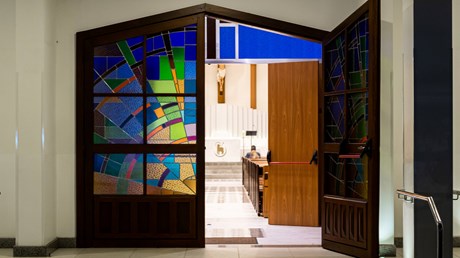In a recent survey, those who left their childhood traditions for a church of their own reported higher engagement with their faith.

Enid Almanzar was shocked the first time she walked into an evangelical church. She had been raised Catholic and was used to stained-glass windows, ornate crosses, portraits of saints, and statues of Christ and the Virgin Mary.
But the nondenominational church she visited had no such things. On the contrary, it seemed quite lax on religious decor or decorum; the pastor, she remembers, had tattoos and rode a motorcycle. “I thought it was sacrilege.”
But looking back, Almanzar believes that visit was the beginning of a process that led her back to faith after wandering away in college. She received her first Bible, joined a study group, and got baptized.
“I felt like I was walking in my mother's faith and my family's faith, and when I took that step into evangelicalism, now it became my faith; it became my Jesus,” said Almanzar, who now works at the American Bible Society (ABS).
She is one of millions of Americans who have switched faiths. While most who switch today are leaving church behind as agnostics, atheists, or nones (those who claim no religious affiliation), many Christians are switching denominations, and ABS research suggests that doing so may strengthen their faith.
People who switch religious traditions are more likely to read Scripture, according to a recent ABS poll in partnership with the National Opinion Research Center (NORC) at the University of Chicago. Those leaving mainline Protestant traditions reported the highest boost in engagement.
“We easily assume that rejecting the faith of one’s youth is a bad thing, but it doesn’t have to be. In fact, the State of the Bible data suggest otherwise,” the ABS report said. “Christians ...
from Christianity Today Magazine
Umn ministry




.gif)

.gif)
.gif)
